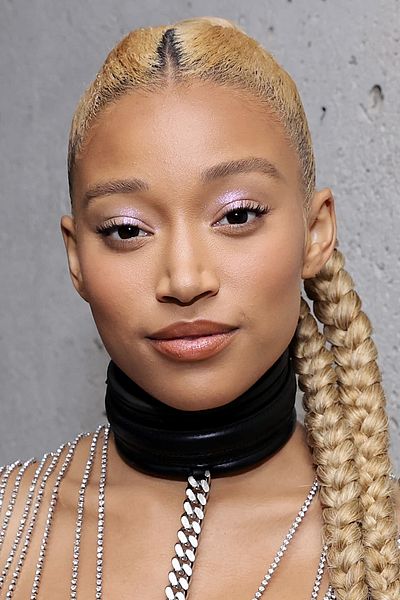As a high school student at an all-white school who has grown up in the all-black suburbs of Garden Heights, Starr Carter (Amandla Stenberg) has often felt like she is living out multiple identities. One night, after attending a local house party, she is involved in a violent event that shakes her to the core. As the only witness to the crime, Starr feels the need to speak out and demand justice. While her family and members of the community encourage and support her, others want Starr to keep her mouth shut.
‘The Hate U Give’ opens with Starr and her siblings being given ‘The Talk’ - which for black youths is not about sex, but about what to do when pulled over by police. Her father, Maverick (Russell Hornsby), stresses “know your rights, know your worth,” and the lesson proves tantamount on numerous occasions as the film progresses.
Flashing forward to Starr at high school, our protagonist shares observations of her classmates ‘acting black’; she points out that if she were to talk like that, she’d be labelled as ‘hood’ and possibly construed as threatening. As with other YA films, we see how high school is the be-all end-all at that age, as initially when she is called to trial, Starr’s fear is that she will be exposed as the ‘poor friend from the hood who saw her friend shot.’ Her life at school is sheltered (as it is for the students around her) until real violence and death come crashing in.
Part of the tragedy of ‘The Hate U Give’ is its inevitability. You can see what’s coming a mile away – and Starr is powerless to stop the events. The injustice is plain and infuriating, and when Starr is asked questions by the police that paint her friend as a criminal, the viewer is unsurprised but horrified. The trauma Starr suffers is indescribable, especially given everything that was said earlier on the night of the incident. Significantly, Stenberg portrays the raw emotion of what Starr is experiencing just beautifully.
Surrounding the young actress is a brilliant cast which includes the likes of Regina Hall (‘Scary Movie’, ‘Girls Trip’), KJ Apa (‘Riverdale’s Archie), Issa Rae (‘Insecure’), Common, and Anthony Mackie (Falcon in the MCU). All take to their parts like ducks to water, but the movie is Stenberg’s, and it’s clear that the ensemble’s primary purpose is supporting her performance and keeping her front and centre.
Audrey Well’s screenplay (based on the novel by Angie Thomas) alternates between a conversational style and DMC monologues. It typically lacks subtlety. At one point, Rae’s activist character talks about the incident being “the same story but a different name” – a phrase that can be applied to the film’s lack of originality overall. ‘The Hate U Give’ considers the difficulties of keeping a protest peaceful when the protestors are fuelled by anger at such injustice, something we’ve seen in film time and again. Still, there are some noteworthy moments, such as a conversation Starr has with her uncle (played by Common) in the third act that leads to tough home truths.
There is some humour incorporated to give audiences relief, especially in the aftermath of the prom sequence, which makes the events that follow all the harder hitting. As far as YA films go, this is the most important one produced in years, and marks a welcome departure from those ridiculous dystopia-fantasy flicks like the ‘Hunger Games’ and ‘Maze Runner’ series. A final word of advice – bring tissues for act three.




















































































